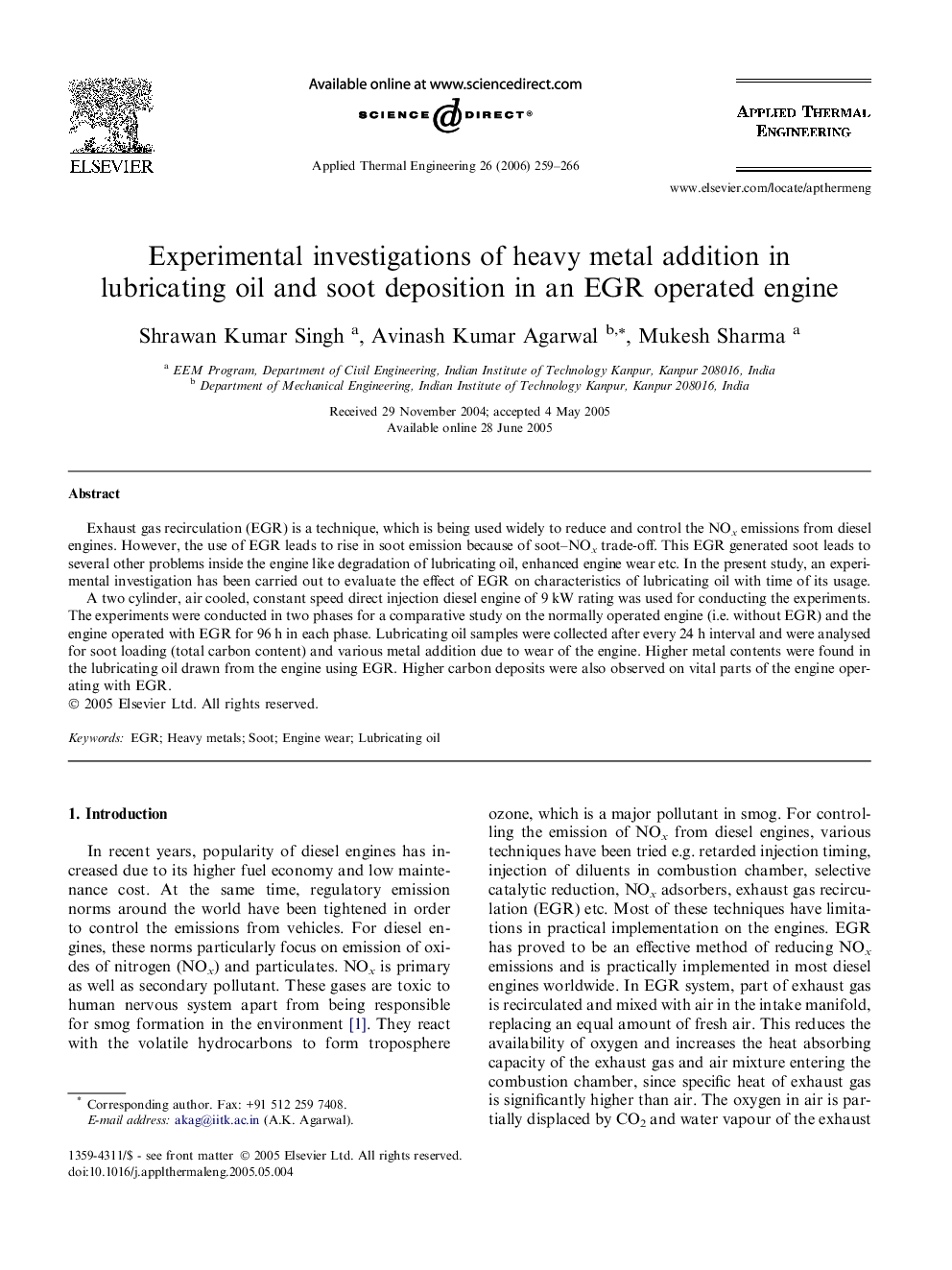| Article ID | Journal | Published Year | Pages | File Type |
|---|---|---|---|---|
| 649848 | Applied Thermal Engineering | 2006 | 8 Pages |
Exhaust gas recirculation (EGR) is a technique, which is being used widely to reduce and control the NOx emissions from diesel engines. However, the use of EGR leads to rise in soot emission because of soot–NOx trade-off. This EGR generated soot leads to several other problems inside the engine like degradation of lubricating oil, enhanced engine wear etc. In the present study, an experimental investigation has been carried out to evaluate the effect of EGR on characteristics of lubricating oil with time of its usage.A two cylinder, air cooled, constant speed direct injection diesel engine of 9 kW rating was used for conducting the experiments. The experiments were conducted in two phases for a comparative study on the normally operated engine (i.e. without EGR) and the engine operated with EGR for 96 h in each phase. Lubricating oil samples were collected after every 24 h interval and were analysed for soot loading (total carbon content) and various metal addition due to wear of the engine. Higher metal contents were found in the lubricating oil drawn from the engine using EGR. Higher carbon deposits were also observed on vital parts of the engine operating with EGR.
